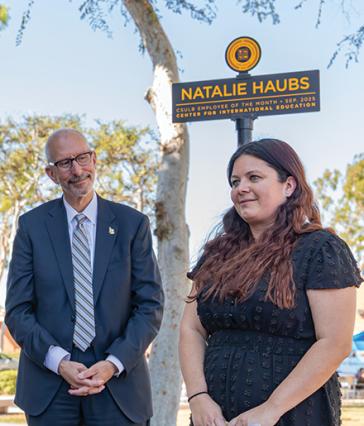Redefining the Honors Experience
At Cal State Long Beach, the picture of an honors student differs slightly from other universities. Mixed among the University Honors Program’s high achievers with loaded resumes are students who managed to earn a 4.0 GPA or better while working to support their families or caring for siblings and could not participate in extracurricular activities.
CSULB’s different approach to its highly touted University Honors Program looks beyond a student’s transcripts. Kashima Samuels, associate director of CSULB’s University Honors Program, said it’s what sets the Beach’s program apart from others.
“Traditionally, when you think of honors, you think of this exclusivity, this elite, the untouchable,” Samuels said. “We are trying to be more refined and ask what it takes to be an honors student. We want to reshape and rethink what honors looks like.”
CSULB has approximately 1,000 students in its University Honors Program, which offers a thriving liberal arts experience and opportunities that includes scholarships, personal advising, smaller class sizes, and leadership and professional development. It aims to recruit students who are not only academically high-achieving, but also community-focused.
The program focuses on three learning objectives: leadership through practice, building community and global learning. University Honors sees its students as leaders, global citizens and creative thinkers.
“As an Honors student, I was positively challenged to engage more in class discussions, collaborate on various group projects, and learn more about research through my senior thesis,” said Sarah Saski, a fourth-year liberal arts major.
Samuels said University Honors provides students a culturally diverse, academically enriched and community-minded environment that provides unique leadership opportunities. Samuels said the program is looking to offer additional opportunities in the future, such as service learning and study abroad experiences.
“We have a lot of innovative ideas, but we don’t have the resources to make them come to fruition,” Samuels said.
“Those are wishes and hopes and you get used to wishing and dreaming when you have limited resources.”

















